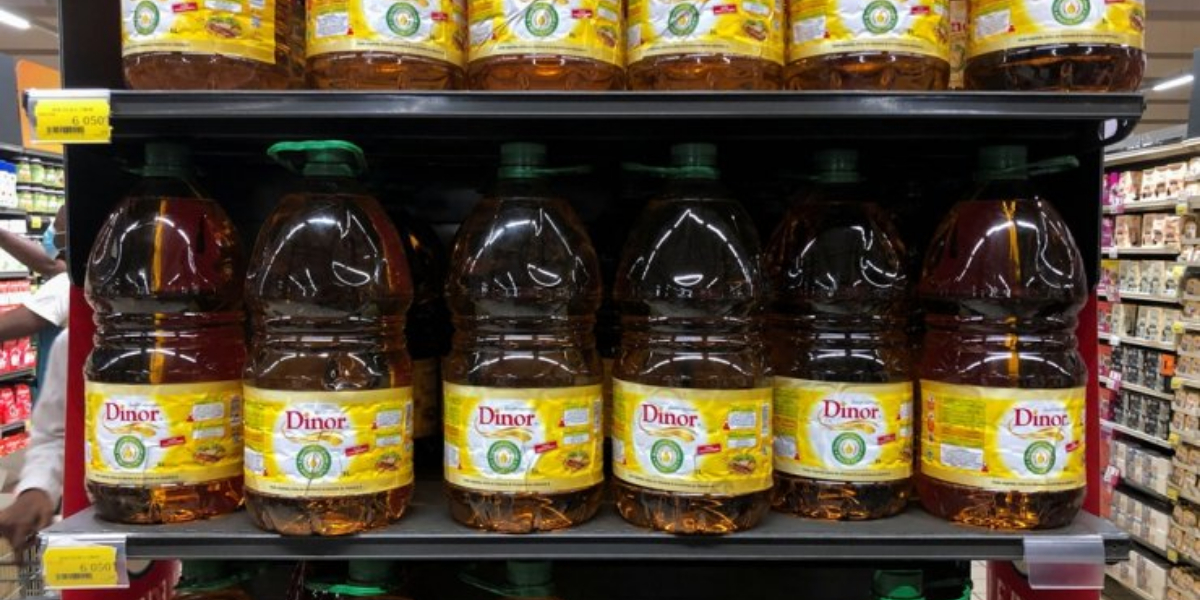In the face of internal shortages, Indonesia’s decision to halt palm oil exports has pushed vegetable oil prices to new highs, further tightening a market already tense owing to the Ukraine conflict and global warming.
Following Indonesia’s statement on Wednesday, the prices of palm, soybean, European rapeseed, and even its Canadian GMO cousin, canola oil, have reached historic highs.
“We had problems with soybeans in South America and canola in Canada,” said Philippe Chalmin, an economics professor at Paris-Dauphine University in France, explaining that both crops had been severely harmed by prolonged droughts.
The “sunflowers in Ukraine” were then destroyed as a result of Russia’s tragic invasion, he added.
Then, as a result of Russia’s disastrous invasion, the “sunflowers in Ukraine” were destroyed, he added.
According to James Fry, head of the LMC consultancy business, palm oil is the most widely consumed vegetable oil in the world, with Indonesia accounting for 35% of global exports.
According to authorities, Indonesia’s export prohibition is intended to lower costs and prevent shortages in the country.
The move, however, “comes at the worst time,” according to Chalmin.
“The rise in prices dates back to last year already and it is exacerbated by the Ukrainian conflict,” he explained.
Rich Nelson of the agricultural market research and trading firm Allendale said “the industry believes it’ll last maybe for one month, perhaps two.”
Then, he remarked, the “sunflowers in Ukraine” were destroyed as a result of Russia’s tragic invasion.
The “sunflowers in Ukraine” were then destroyed by Russia’s disastrous invasion, he added.
According to James Fry, head of the LMC consultancy business, palm oil is the most widely consumed vegetable oil in the world, with Indonesia accounting for 35 percent of global exports.
According to authorities, Indonesia’s export prohibition is intended to lower costs in the country and prevent shortages.
The move, however, “comes at the worst possible time,” according to Chalmin.
“It’s difficult to ration demand for food commodities with higher prices,” said Arlan Suderman, chief commodities economist at StoneX Financial.
Palm oil, which is used heavily in processed food such as instant noodles and baked goods, is also present in other consumer products, such as personal care items and cosmetics.
“Eventually it will trickle down,” said Paul Desert-Cazenave of consulting firm Grainbow, “but it’s still too early to measure price increases to consumers.”
In the short term, the only oilseed that might be able to provide some relief to the vegetable oil market is the soybean.
Even if extra shipments from the two countries would only have a little impact on edible oil prices, the United States and Brazil, the world’s two major soybean exporters, still have ample supply.
Previous month, the United States Department of Agriculture (USDA) predicted that soybean acreage would expand by more than 4% over last year, while corn acreage would decrease by a similar amount.
Meanwhile, Canada, the world’s top rapeseed producer, predicted a 7% drop in land dedicated to GMO rapeseeds used in canola oil on Tuesday.
Analysts and economists believe that public policy is needed to address the food crisis, because vegetable oils are widely used in biofuels in addition to food.
Based on the current crisis “we’re going to see more pressure on countries to reduce their biodiesel blending mandates, and renewable diesel mandates,” Suderman said.
“That’s going to take time,” he warned, “but that’s ultimately where you’re going to get your biggest demand destruction.”
In 2018, the European Union issued a rule exempting palm oil from renewable energy requirements by 2030. Some countries in the bloc, including France, have already abandoned it.
Despite the current turbulence, Indonesia and Malaysia, the world’s second-largest exporters, have continued to blend palm oil into their respective biofuels projects.
To make matters worse, the currencies of many of the biggest palm oil importers, primarily Egypt, Bangladesh, and Pakistan, have depreciated dramatically in recent months, according to Michael Zuzolo, president of Global Commodity Analytics & Consulting.
In the meantime, some major oilseed exporters, such as the United States and Brazil, have seen the dollar rise to multi-year highs.
“This is kind of the worst-case scenario starting to develop,” said Zuzolo.
Putting importers in a “negative feedback loop where they’re going to have more and more difficulty keeping supplies ample, that’s the potential tragedy we’re walking ourselves into.”

















